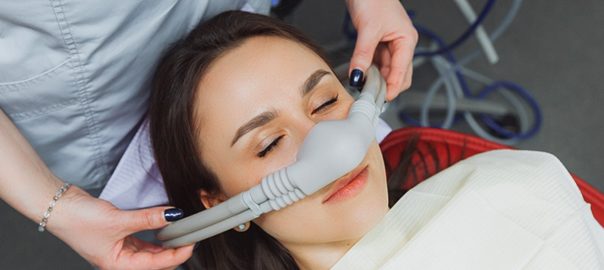
Are You Afraid of the Dentist? Try Dental Sedation for a Better Experience
Whether you suffer from an ordinary toothache or need an operation to get the broken tooth pieces out from the gum, feeling apprehensive about visiting the dentist is normal. Also, most people don’t understand Dental anatomy or other clinical facts. Plus, the colossal and unknown instruments used for dentistry can easily implant the seeds of an uncontrollable fear in your heart.
The mere thought of feeling the intense pain of the tooth being uprooted or the doctor using their scalpel to make the incision puts your heart in overdrive. Although there is no such alternative to dental treatments, you can opt for dental sedation.
What is Sedation in Dentistry, and How is it Performed?
You may often feel your hands becoming clammy and your heart racing to an unexpected level when you are called inside the dentist’s chamber. This usually happens when you are over-anxious and fear the dental procedure.
Although it is pretty standard, having dental anxiety can hinder the treatment process. This is where dental sedation comes into play. Also known as conscious sedation or twilight sleep, it is a minor procedure where the dentist will inject a moderate amount of sedative in different ways to relax your nerves and calm you down.
You will be conscious throughout the procedure but won’t be able to feel a single thing due to the semi-conscious state of your brain.
Types of dental sedation
There are three different ways in which doctors perform the dental sedation process. In this section below, we have briefly described them for further clarification.
- Nitrous oxide sedation: Here, the dentist will put a mask over your nose to allow you to inhale the laughing gas or nitrous oxide. It has a mild sedative effect on your nerves. The dentist will control the dosage throughout the process. Once the procedure is done, he will replace the nitrous oxide cylinder with pure oxygen for flushing out the gas from your body.
- Oral sedation: In this process, the dentist usually gives oral medicines like clonazepam or triazolam based on your medical history. The dosage is controlled to avoid any adverse situation. Sometimes, syrup with sedative compounds in mild percentages is also administered.
- Intravenous or IV: For long-term dental procedures that involve implantation, complicated surgeries, neural treatments, and more, dentists usually consider intravenous or IV treatment. Just like regular sedation, the medicine is injected into the patient’s bloodstream. The doctor monitors heart rate, pulse, and blood pressure throughout the process to avoid further adverse situations.
Benefits of Dental Sedation
Sedation will ease your fear of the dentist, ensuring you can become carefree for the procedure to be performed.
- You won’t feel nervous anymore, regardless of the dental procedure’s complexity.
- Dental sedation can reduce anxiety levels and put you at ease if you have anxiety.
- The sedation doesn’t take too long to kick in. You must take the medicines half an hour before the procedure for oral sedation.
- Dental sedation is administered at low to medium levels, ensuring no prolonged side effects can be there.
- You won’t have to deal with losing muscle coordination or any form of euphoric high.
Routine to Follow Before and After the Dental Sedation
You must follow a specific routine to ensure the procedure is appropriately administered. In this following section, we have explained what to do before and after dental sedation.
Before Sedation
After discussing the health problems and other conditions, your doctor will administer the proper sedation process and the dosage. You need to keep your stomach empty for at least six hours. Take all the medicines as instructed by your doctor.
After Sedation
If your doctor has chosen oral or IV sedation, you must visit the dental clinic with a friend or family. In both cases, the sedation may last a couple of hours after the procedure. So, you cannot drive yourself back home. Take proper sleep to allow your body to return to consciousness gradually.
Who can Opt for Dental Sedation?
Understanding the conditions when dental sedation sounds like the best option is crucial. Following are the cases when you should opt for this method.
- You have sensitive teeth and gums.
- Your pain threshold level of tolerance is low.
- You have dental anxiety that can interfere with the procedure.
- You will undergo a complicated dental procedure that involves surgeries.
Conclusion
In this brief, we have discussed everything you need to know about dental sedation, how dentists administer the sedatives, their benefits, and so on. With this guide, you now have a basic knowledge of what transpires during dental sedation. To know more about dental sedation, you can consult with the dentists at Clove Dental for in-depth knowledge. Their skills and years of experience will help solve all your dilemmas concerning the sedation process in dentistry.
DISCLAIMER:Please note that the prices mentioned on this page: (a) present a range (depending upon the severity of the dental condition, the technology used in treatment, type of dental products used, etc.); (b) are true as on the date of this page and may change on a later date, in accordance with the standard company policy; (c) may be subject to standard aberrations or generalizations on account of the use of AI in general Google/internet search by you.Leave a Reply
Leave a Reply
Explore More Similar Posts
Explore More Blogs


Leave a Reply